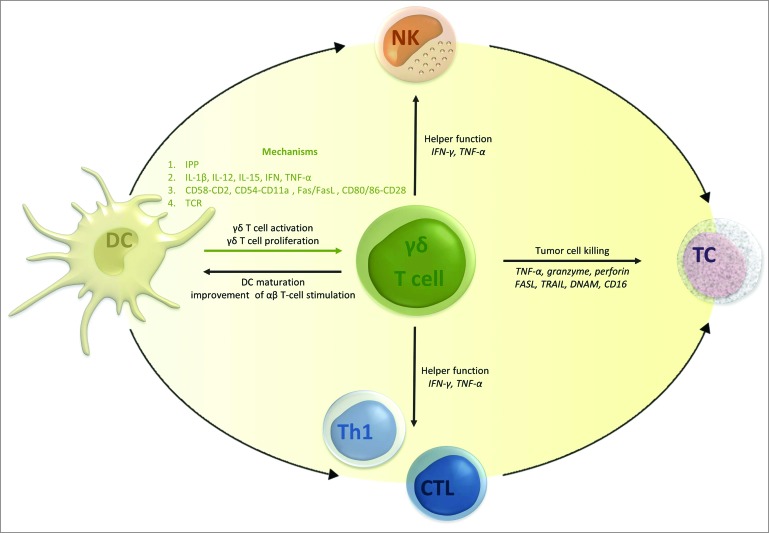Figure 1.
How γδ T cells can contribute to the antitumor efficacy of dendritic cell (DC)-based vaccination. It can be postulated that DC vaccination has the ability to activate γδ T cells and initiate their expansion. In turn, activated γδ T cells can (I) further stimulate vaccine and host DCs indirectly supporting sustained antitumor T-cell immunity and NK-DC crosstalk, (II) fulfil their immunomodulatory function through the secretion of pro-inflammatory cytokines regulating innate (natural killer cells) and adaptive (T cells) cellular immunity, and (III) directly kill tumor cells. Abbreviations: CTL, cytotoxic T lymphocyte; DC, dendritic cell; DNAM, DNAX accessory molecule; FASL, Fas ligand; IFN, interferon; IL, interleukin; IPP, isopentenyl pyrophosphate; NK, natural killer cells; TC, tumor cell; TCR, tumor cell; Th1, T-helper 1 cell; TNF, tumor necrosis factor; TRAIL, TNF-related apoptosis-inducing ligand.

